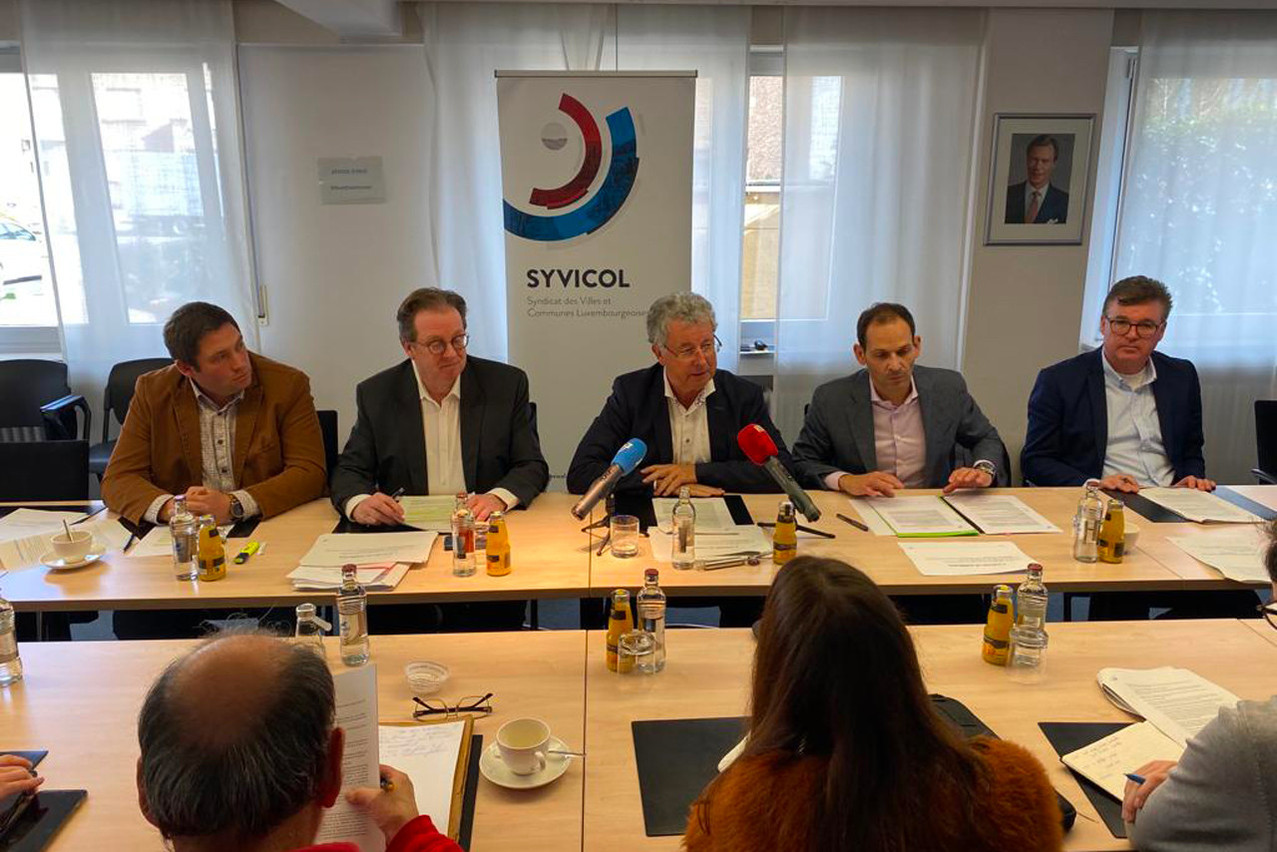"Consider us more as a partner than an adversary", declared the president of the Union of Luxembourg Cities and Municipalities (Syvicol), , on Monday. This statement sums up Syvicol’s state of mind as it presented 36 proposals to the various political parties for them to use in their electoral programmes for the next legislative elections.
"It is important to make them understand that we are more a partner than an executor of the government," explains Eicher. One example that illustrates the value of this collaboration between municipalities and government is the covid-19 pandemic. "We had a very good experience as partners during the covid crisis: we had very close and regular contacts with the ministries concerned, be it education, health or the interior," said the CSV deputy. "The result was very quick and precise action, without any problems on the ground.
But for such a partnership to exist, the municipalities should be more involved in the legislative process, both upstream and downstream. Upstream, that would require with the institutionalisation of Syvicol consultation on all draft laws and regulations that concern the communes. The process has been strengthened in recent years, notably with a 2019 government circular asking ministers to submit draft laws or regulations affecting municipalities to Syvicol for an opinion. "Most ministers do this, but some do not do it systematically, so we have to refer ourselves, which is not very respectful of the communes,” Eicher concludes.
Status similar to a professional chamber
Syvicol would like to have a status similar to that of a professional chamber. If the national and communal mandates of elected representatives were to be separated, it could even be a real chamber of communes. "We would then no longer have representatives in the Chamber of Deputies, so we would have to find a system that would replace it, hence a Chamber of Communes that would have the possibility of intervening at the legislative level, if possible with a right of veto," explains the mayor of Clervaux. "But this would be a much more distant step.”
Syvicol is calling for a more downstream role in the implementation of laws, meaning an independent evaluation of laws affecting municipalities a few years after they come into force. The union is also calling for a "communal financial statement" to be included in each of these laws--something that is done for the State but not for the communes--so that, in the event of additional burdens, provision is made for how to cover them.
36 proposals
From the legislative process to finances, digitalisation, housing, citizen participation or education, Syvicol lists 36 positions that go in the direction of a better integration of the communes.
1. Consider the municipalities as a real partner, not only in words but also in deeds.
2. Institutionalise the consultation of SYVICOL on any draft law or regulation affecting the communes
3. Create a chamber of communes in case of separation of mandates
4. Evaluate new laws after a certain period of time and make any necessary adjustments in consultation with the communes
5. Involve the municipal sector in civil service reforms
6. To pursue a spatial planning policy that respects the municipalities
7. Involve municipalities more actively in the implementation of the 2030 Agenda
8. Systematically apply the constitutional principle of connectedness
9. Make unrestricted funds available
10. Add a 'municipal financial statement' to each bill
11. Apply the principle of connectedness in time
12. Update, simplify and harmonise the regime of state subsidies
13. Ensure that municipalities have an adequate stake in economic activity
14. Allow the municipalities to benefit from the proceeds of the future mobilisation tax
15. Continue the modernisation of the Municipal Law
16. Create a real "status of the local elected representative".
17. Review the missions of the communes
18. Facilitate the recruitment of competent personnel for the communes
19. Increase the threshold of the proportional representation system
20. Establish a legal framework for the digitalisation of the municipal administration
21. Create a one-stop shop for all permit applications
22. Enable all entities in the municipal sector to appoint the Government Data Protection Commissioner to the State as their DPO
23. Curb normative inflation
24. Supporting the development of smart cities
25. Increase special support for mergers of municipalities and make it available to municipalities earlier
26. Create a legal framework for enhanced cooperation
27. Strengthen the council of municipalities interested in a merger by including municipal representatives
28. Ensure coherent policy objectives for housing
29. Supporting municipalities in the management of rented housing
30. Sign and ratify the Additional Protocol to the European Charter of Local Self-Government on the right to participate in the affairs of a local authority
31. To support municipalities taking specific measures for citizen participation
32. Increase the number of staff co-financed by the state
33. Enable mayors and aldermen to be part of the board of their social office
34. Limiting the responsibility of municipalities for school safety
35. Clarifying and updating the building regulations for basic education and non-formal education
36. Eliminate the overlap of competences between the ITM and the SNSFP with regard to school buildings
The proposals are explained in more detail in the report below (French).
This story was first published in French on . It has been translated and edited for Delano.
